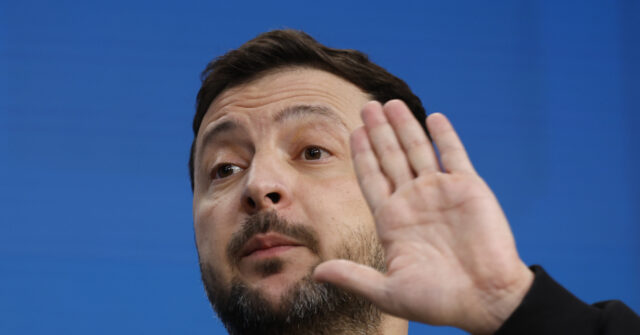The ongoing war in Ukraine against Russian forces has predominantly relied on support from Western allies, but Ukrainian President Volodymyr Zelensky has faced criticism for adopting a confrontational stance towards these very allies. Newly appointed NATO Secretary General Mark Rutte has notably pointed out Zelensky’s “harsh criticism” directed towards key supporters, particularly in relation to Germany’s hesitance to supply advanced weapons like the Taurus missiles. Rutte emphasized to the press that he believes Zelensky should refrain from targeting his criticism at German Chancellor Olaf Scholz, stating the critique is unwarranted given Germany’s significant contributions to Ukraine’s defense.
The controversy centers on Germany’s refusal to send its advanced Taurus missiles to Ukraine, a decision that has been contentious within German political circles as well. The Taurus is a long-range missile that can strike deep into enemy territory and is seen as a crucial asset for Ukraine’s military strategy. Despite Rutte’s personal stance favoring the supply of such weapons, he acknowledged that the decision ultimately rests with individual NATO member states, and he is not in a position to dictate their military aid policies. Germany remains cautious about escalating the conflict further, citing concerns over the geopolitical ramifications of arming Ukraine with missiles capable of targeting locations inside Russia.
Zelensky’s frustration has emerged publicly, including his disapproval of German Chancellor Scholz’s recent communications with Russian President Vladimir Putin, which Ukraine deems undermining to peace efforts. This sentiment reflects a broader dissatisfaction in Ukraine regarding the perceived timidity of its allies in providing the necessary military support that Kyiv believes essential to winning the war. Scholz has articulated his stance on military support, asserting that Germany has no intentions of deploying NATO soldiers in Ukraine nor risking further escalation of military actions.
The narrative surrounding Ukraine’s diplomatic interactions reveals an underlying tension between Kyiv’s urgent military needs and the cautious approaches adopted by Western allies. Arguments have surfaced suggesting that Ukraine should express more recognition for the extensive assistance it has already received from countries like Poland and the UK. In a notable incident, Ukrainian officials confronted the Polish ambassador over suggestions that Kyiv’s officials needed to demonstrate greater appreciation for Polish support, signifying the stress in diplomatic relations amid the ongoing conflict.
Historical echoes of a similar sentiment have appeared in the UK, where former defense minister Ben Wallace advised Ukraine to exhibit gratitude towards its international backers. Zelensky’s rebuttal to such sentiments, perceived as sarcastic, indicated his defense of a more aggressive diplomatic stance tailored to secure military support necessary for Ukraine’s survival. The back-and-forth led to significant fallout within Ukraine’s diplomatic ranks, displaying the complexity and strain characterizing diplomatic communications amid wartime pressures.
In summary, while Ukraine continues to wage an intense and defensive campaign against Russian aggression, the relationship between Zelensky’s administration and Western allies showcases a challenging landscape where urgent military needs clash with geopolitical considerations. The comments from leaders like Rutte highlight the delicate balance NATO must maintain in providing support while addressing concerns of escalation, revealing a multi-faceted dialogue that blends gratitude, urgency, and strategic positioning in the face of an ongoing crisis. The dynamics of these relationships reflect the pressures both on Ukraine to secure aid and on its allies to navigate their own national interests within the broader context of international security.

